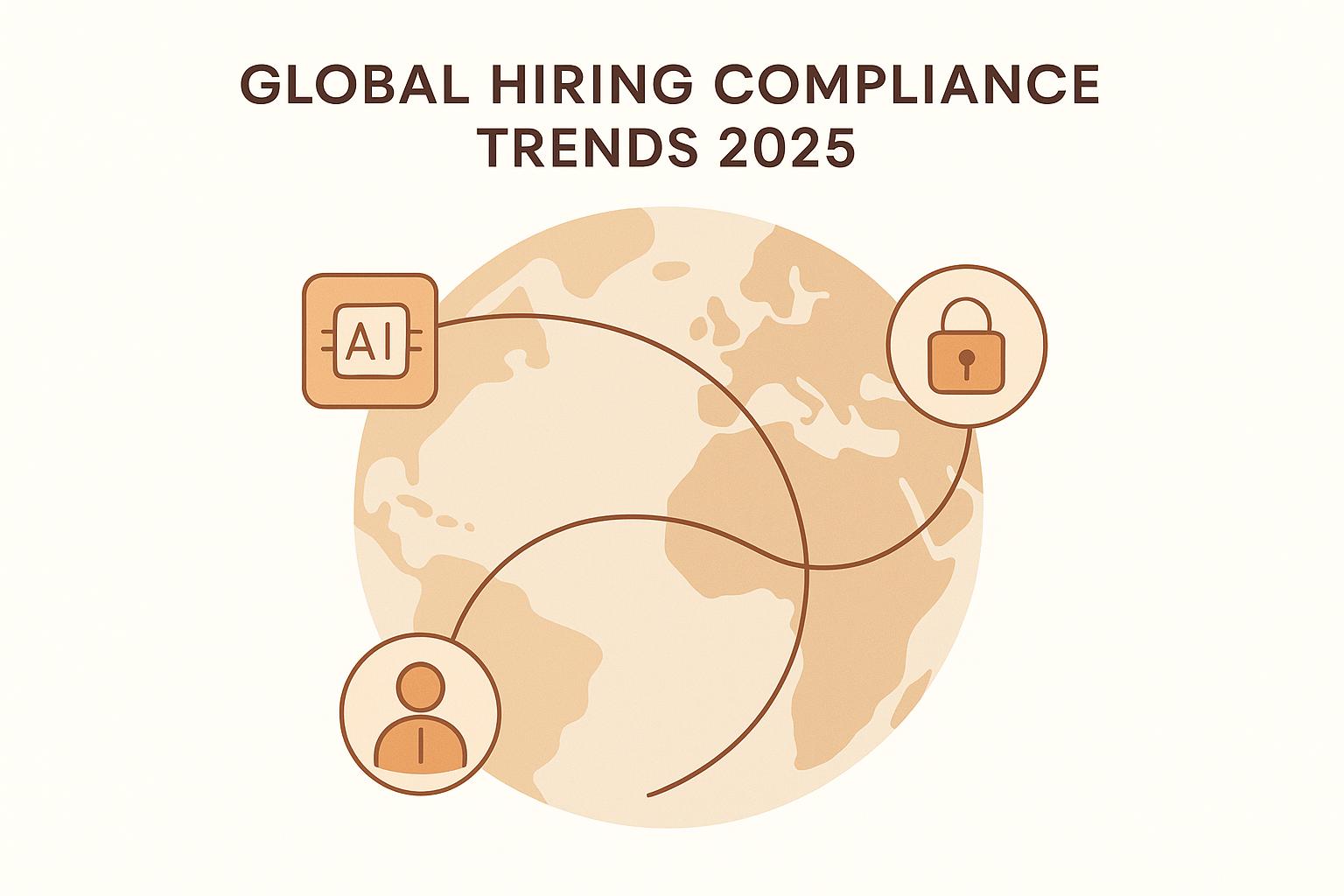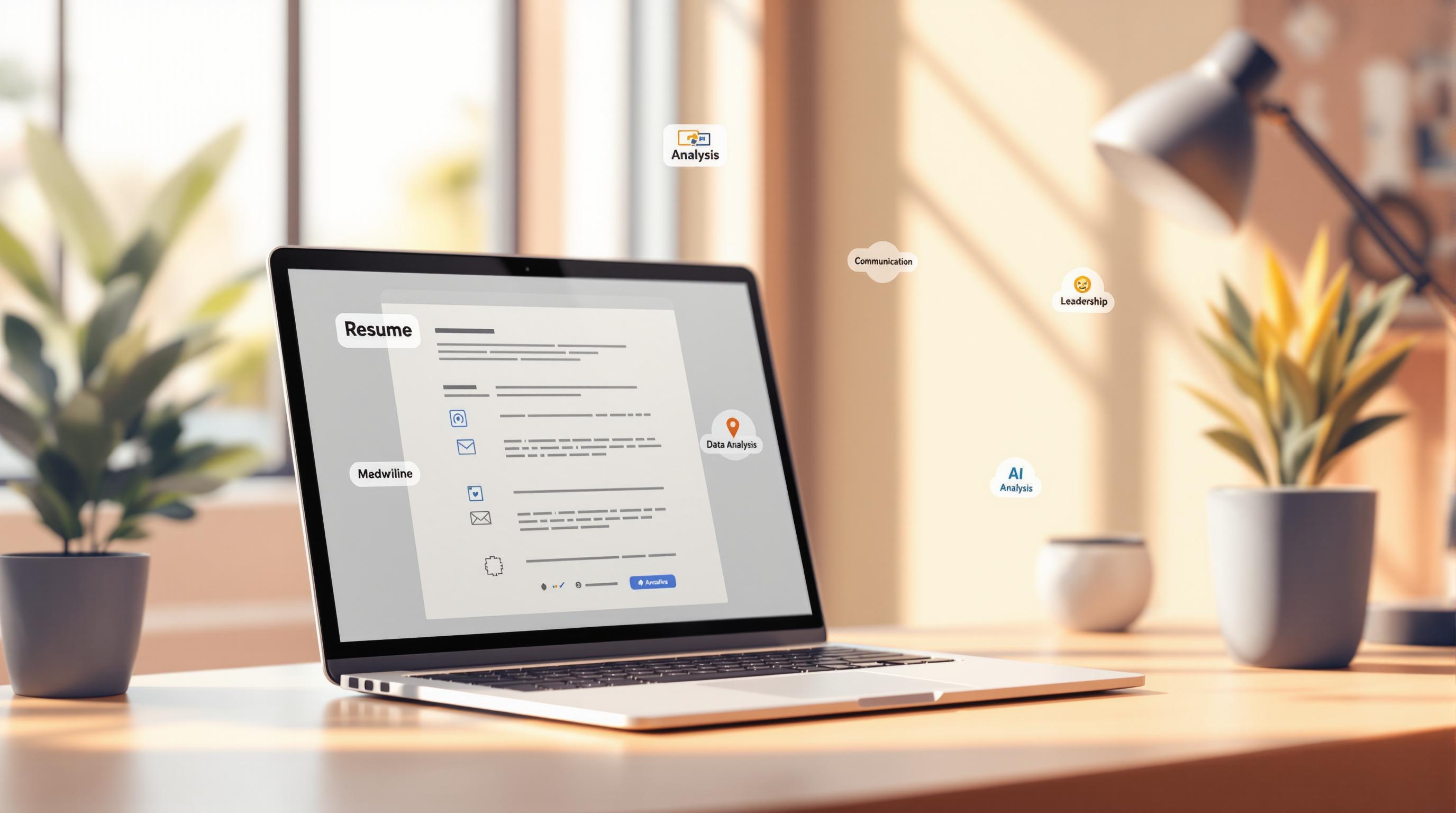AI is transforming remote hiring by making skill validation faster, accurate, and data-driven. Here's how it works and why it matters:
- Skill Verification Challenges: Remote work limits in-person evaluations, making it harder to assess technical skills, soft skills, and qualifications.
- AI Solutions: Tools like JobSwift.AI use Natural Language Processing (NLP), Machine Learning, and Applicant Tracking Systems (ATS) to analyze resumes, verify skills, and detect fraud.
- How It Works: AI assigns skill scores by cross-checking resumes, analyzing work samples, and comparing candidates to proven success profiles.
- Benefits: Employers save time, reduce hiring risks, and ensure fair evaluations. Job seekers get actionable feedback, fraud protection, and personalized recommendations.
How AI Validates Skills
Key AI Assessment Tools
AI uses a mix of Natural Language Processing (NLP), machine learning, and automated systems to evaluate remote work skills effectively.
- Natural Language Processing (NLP): This technology examines resumes and work samples, focusing on context and the relationships between skills.
- Machine Learning Algorithms: These systems analyze large datasets to spot patterns in successful hires, matching candidates to job requirements. Over time, they improve by learning from hiring outcomes.
- Automated Tracking Systems (ATS): ATS tools process applications, extract key qualifications, match skills to roles, and monitor progress.
Platforms like JobSwift.AI combine these tools - such as ATS and CV optimization - to simplify skill validation. Together, they provide a foundation for deeper skill assessments.
AI Skill Review Methods
AI goes beyond surface-level evaluations, using precise methods to dig into a candidate's skillset:
- Document Analysis: AI scans resumes to pinpoint skill-related keywords, assess the context of those skills, evaluate the depth of experience, and ensure timelines align.
- Pattern Recognition: By analyzing hiring data, AI compares candidates to proven success profiles, identifies effective skill combinations, and flags potential gaps.
- Automated Verification: AI cross-checks claimed skills with work samples, uncovers inconsistencies, and spots signs of fraud.
These tools complement human judgment, offering hiring managers detailed, data-backed insights to make smarter decisions.
Steps in AI Skill Validation
Collecting Candidate Data
AI systems process applications and resumes using ATS (Applicant Tracking Systems), pulling out key details such as:
- Work experience
- Educational history
- Certifications
- Project examples
- Listed skills
It also reviews the document's structure to ensure it's optimized for ATS systems. Tools like JobSwift.AI's application dashboard let candidates monitor how well their applications perform across different platforms, offering tips for improvement. This collected data is then used to generate precise skill scores.
Once the data is gathered, AI compares these qualifications to the job's requirements.
Skill Assessment Scoring
- Skill Relevance: Aligning listed skills with the job's needs.
- Experience Evaluation: Assessing expertise based on past roles.
- Technical Skill Rating: Measuring proficiency in specific technical areas.
The AI assigns a numerical score, making it easier for employers to pinpoint top candidates. This method eliminates personal bias during the initial screening and ensures every application is evaluated consistently.
These scores then feed into the next phase: verifying the accuracy of each claimed skill.
Skill Claim Verification
- Document Validation: AI cross-checks details like dates, roles, and career progression for consistency.
- Work Sample Analysis: Examines submitted projects or samples to confirm expertise.
- Fraud Detection: JobSwift.AI's anti-scam tools flag unusual or suspicious patterns in applications.
These steps provide a solid, data-driven foundation for remote hiring decisions, ensuring evaluations are accurate and free from bias. Together, they create a reliable process for assessing candidates.
AI Tools To Use To Get Hired Remotely | Create Your AI ...
sbb-itb-96bfd48
Advantages of AI Skill Validation
AI skill validation offers benefits for both employers and job seekers, making the hiring process more efficient and transparent.
Employer Benefits
AI simplifies remote talent assessment, saving both time and money.
- Time and Cost Savings: AI can handle thousands of applications at once, eliminating the need for manual reviews and speeding up the hiring process.
- Consistent Evaluations: AI applies the same criteria to every application, ensuring fair and objective assessments for remote roles.
- Lower Hiring Risks: With built-in fraud detection, AI verifies skills and credentials, helping companies avoid costly hiring mistakes.
Job Seeker Benefits
AI doesn't just help employers - it also empowers job seekers with actionable insights and added security.
- Performance Insights: Platforms like JobSwift.AI provide clear metrics, such as:
- Application performance tracking
- Skills match analysis
- Gaps in required certifications
- Tips for improving ATS compatibility
- Fraud Protection: AI flags fake job postings, saving applicants from wasting time on scams.
- Personalized Recommendations: Get tailored advice on certifications, trending skills, and ways to improve your applications.
Using AI Validation Effectively
Building on traditional validation methods, combining AI insights with human expertise can improve outcomes in remote hiring.
Human and AI Collaboration
Pairing AI tools with human judgment leads to better skill assessments for remote roles. Here's how you can make the most of this combination:
- Review AI-generated skill match scores alongside candidate portfolios.
- Use AI insights to guide and tailor interview questions.
- Cross-check technical assessments by combining AI data with expert reviews.
- Document hiring decisions by blending AI metrics with human observations.
Transparent Evaluation Method
Being upfront about how AI is used in evaluations helps build trust and improves the quality of applications. Employers should clearly outline their AI evaluation criteria during the hiring process.
For instance, tools like JobSwift.AI provide real-time feedback, skill match percentages, detailed criteria, and flags for missing qualifications - offering candidates a clear understanding of their standing.
Ethics and Privacy
Using AI for hiring requires a strong focus on ethics and data protection. Key considerations include:
Preventing Bias:
- Conduct regular audits of algorithms.
- Use diverse training datasets.
- Apply multiple methods for validation to ensure fairness.
Securing Data:
- Store candidate information with encryption.
- Limit how long data is retained.
- Offer clear options for candidates to opt in or out of data usage.
Protecting Privacy:
- Be transparent about how data is used.
- Handle sensitive information securely.
- Follow all relevant data protection regulations to stay compliant.
Conclusion: Next Steps in AI Validation
AI is reshaping how remote work skills are evaluated, changing the game for both employers and job seekers. With AI-powered tools, hiring processes have become more efficient, offering data-driven and private assessments.
Here’s how both sides can take actionable steps moving forward:
Action Items
For Employers:
- Combine AI assessments with human input for a balanced evaluation.
- Use platforms that include built-in scam protection for safer hiring.
- Regularly analyze AI-generated data to improve hiring strategies.
- Keep your AI validation process transparent by documenting it for candidates.
For Job Seekers:
- Test your CV on validation platforms to ensure it works well with ATS systems.
- Use AI tools to track your application progress and identify areas for improvement.
- Check the legitimacy of job postings with AI-based scam detection tools.
- Showcase your skills honestly without relying on artificial enhancements.
Platforms like JobSwift.AI are leading the way by offering tools for automated tracking and CV optimization while maintaining high ethical standards.
Following these steps can help make remote hiring more secure and reliable through AI-driven skill validation.


